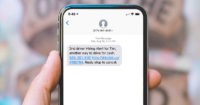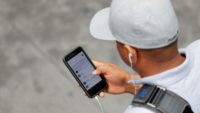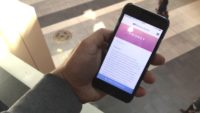If a traveler’s phone, tablet or computer ever gets searched at an airport, American border authorities could add data from their device to a massive database that can be accessed by thousands of government officials. US Customs and Border Protection (CBP) leaders have admitted to lawmakers in a briefing that its officials are adding information to a database from as many as 10,000 devices every year, The Washington Post reports. Read full story here: US border forces are seizing Americans’ phone data and storing it for 15 years | Engadget
Read MoreTag: Cellphone
Liberals Give Big 3 Wireless Providers Two Years To Cut Prices By 25 Percent | CBC News
The Liberal government is giving Canada’s big three national wireless providers two years to cut their basic prices for cellphone services by 25 per cent — and telling them it will step in to cut prices if they don’t comply. Innovation, Science and Industry Minister Navdeep Bains issued the ultimatum today along with new spectrum auction rules that could open up Canada’s wireless market to new competition. “Yes, affordability is a challenge and we need to see lower prices,” Bains told CBC news. Bains said the government expects Bell, Telus…
Read MoreOpinion – How To Track President Trump | The New York Times
If you own a mobile phone, its every move is logged and tracked by dozens of companies. No one is beyond the reach of this constant digital surveillance. Not even the president of the United States. The Times Privacy Project obtained a dataset with more than 50 billion location pings from the phones of more than 12 million people in this country. It was a random sample from 2016 and 2017, but it took only minutes — with assistance from publicly available information — for us to deanonymize location data…
Read MoreT-Mobile, Sprint, And AT&T Still Selling Your Location Data, Report Says | Ars Technica
In June 2018, all four major US wireless carriers pledged to stop selling their mobile customers’ location information to third-party data brokers. The carriers were pressured into making the change after a security problem leaked the real-time location of US cell phone users. Read full story here: T-Mobile, Sprint, And AT&T Still Selling Your Location Data, Report Says | Ars Technica
Read MoreBell Wants Permission To Gather And Track Customer Data | CBC News
Canada’s largest telecommunications group is getting mixed reviews for its plan to follow the lead of companies like Google and Facebook in collecting massive amounts of information about the activities and preferences of its customers.Bell Canada began asking its customers in December for permission to track everything they do with their home and mobile phones, internet, television, apps or any other services they get through Bell or its affiliates. Read full story here: Bell Wants Permission To Gather And Track Customer Data | CBC News
Read MoreAlmost Half Of US Cellphone Calls Will Be Scams By Next Year, Says Report – CNET
Expect even more spam calls in 2019. Many of us are already conditioned to ignore phone calls from unknown numbers. A new study seems to validate that M.O. By next year, nearly half of the mobile phone calls we get will be scams, according to a new report from First Orion, a company that provides calls management and protection for T-Mobile, MetroPCs, Virgin Mobile and others. The percentage of scam calls in US mobile traffic increased from 3.7 percent last year to 29.2 percent this year, and it’s predicted to rise to 44.6 percent…
Read MoreCRTC’s Unlocked Phone Rule Has Sparked A Crime Spree, Bell And Rogers Say | CBC News
Bell and Rogers say new rules mandating all Canadian wireless carriers sell unlocked phones have triggered a rise in phone thefts. “There have been multiple instances of armed robberies at our stores targeting unlocked, new devices,” Bell said in a submission to the CRTC. The broadcast regulator had requested information from carriers to assess how its new rules are working out. To help spur competition, on Dec. 1, the CRTC mandated that all carriers unlock phones for free and only sell unlocked phones going forward. Previously, telcos sold customers phones locked to their networks and charged a…
Read MoreCellphone Tracking Has Been Used In At Least 1 Canadian Mall, Former Employee Says | CBC News
A Canadian real estate company already under investigation for using facial recognition technology in malls may also be tracking the movement of shoppers using mobile phones. A former employee of Cadillac Fairview told CBC News he was aware of at least one of the company’s Canadian shopping centres that had a system installed to track cellphone movement throughout the mall to collect market research data. CBC News has agreed to keep the former employee’s identity confidential. He worked directly for Cadillac Fairview in security for more than three years, and was responsible…
Read MoreCan Canadian Border Agents Search Your Phone Or Laptop? A New Guide Explains | CTV News
A civil liberties group has published a new guide for people concerned about Canadian border agents searching their electronic devices like smartphones, laptops and tablets. Although there are unsettled legal questions about how these searches should work, the B.C. Civil Liberties Association says “the bottom line is that the CBSA can and does search electronic devices at the border” without a warrant and sometimes randomly. That means border agents could end up seeing private emails and text messages, photos, web browser histories and sensitive documents, even if you’ve done nothing…
Read More









